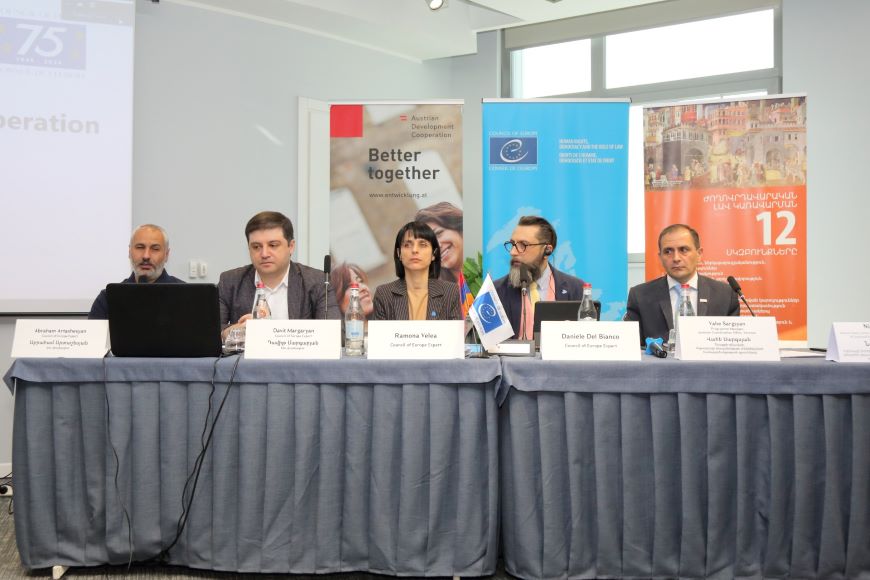“What we cannot do alone, we can achieve together.” Local leaders and economic development officers from 42 Armenian local authorities expressed optimism about the potential for inter-municipal co-operation to help deliver better services to citizens, during a series of workshops organised by the Centre of Expertise for Good Governance (CEGG) in Yerevan.
The workshops followed the recent awarding by the CEGG of 11 grants to local authorities in Armenia to develop feasibility studies into opportunities for intermunicipal cooperation.
On 11 April 2024 – the same day as the launch of the Council of Europe’s comprehensive response package to the refugee influx in Armenia – a dedicated workshop on Resilience Building Strategies (ReBuS) was organised to support communities in developing effective responses to the influx of refugees from Karabakh. The Resilience Building Strategies approach is in line with the recent Congress Recommendation 510 (2024) on Local and regional responses to natural disasters and climate hazards: from risk preparedness to resilience, adopted in March 2024. At the same time, a deadline for communities hosting refugees from Karabakh to apply for a grant to address immediate and mid-term needs was extended until 19 April 2024.
These activities were organised under the Democratic Development, Decentralisation and Good Governance in Armenia - Phase 2 project and the “Support to Communities Hosting Refugees in Armenia” project, implemented by the Centre of Expertise for Good Governance at the Congress of Regional and Local Authorities as part of the Council of Europe Action Plan for Armenia 2023-2026, with funding from Austrian Development Cooperation. The project aims to support the adoption of revised legislative framework for local self-government in line with European standards to reflect the new territorial-administrative map of Armenia and develop the capacities of local authorities of the newly enlarged communities to fulfil the competences and deliver the services entrusted to them under the decentralisation strategy.



